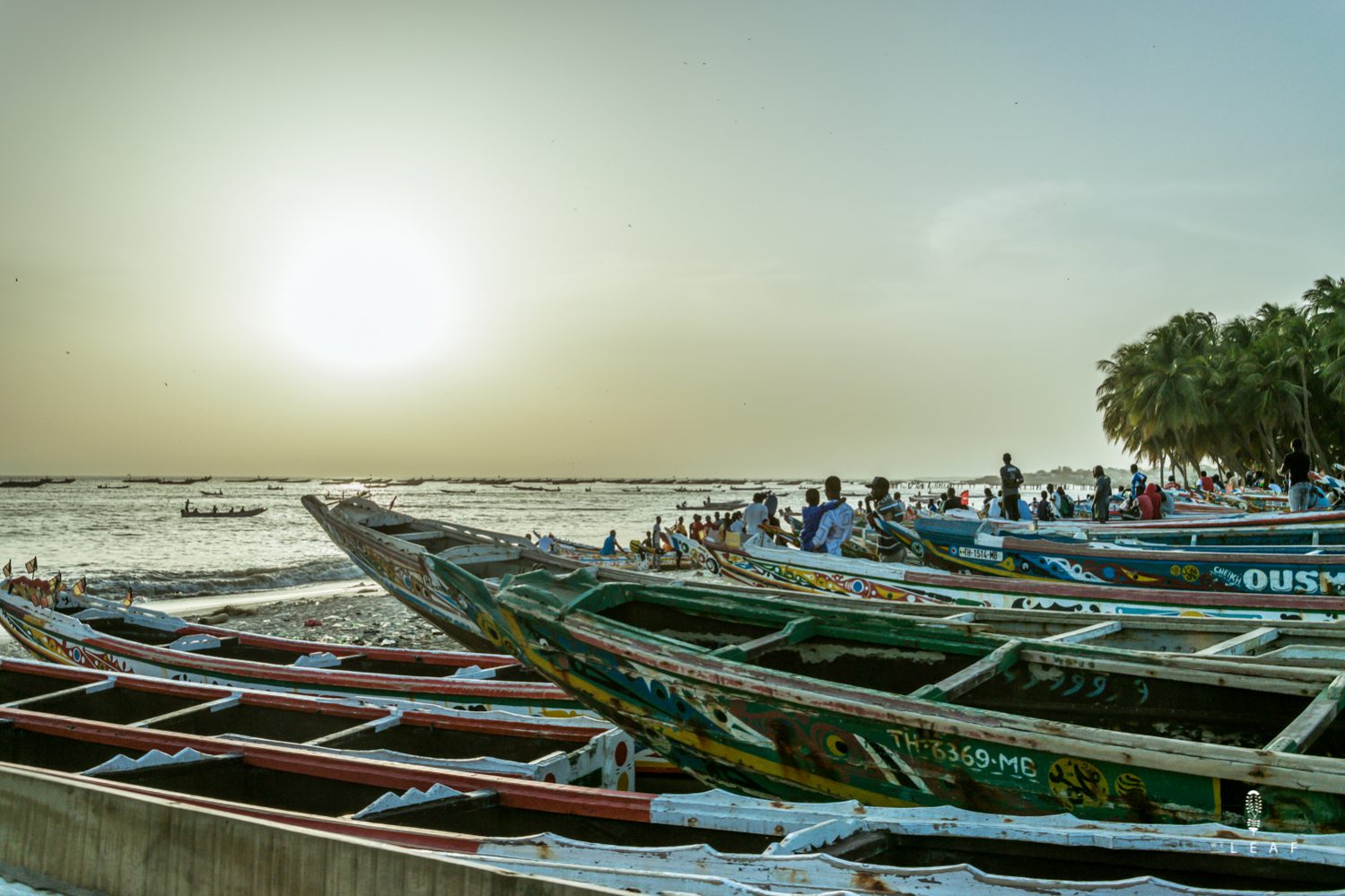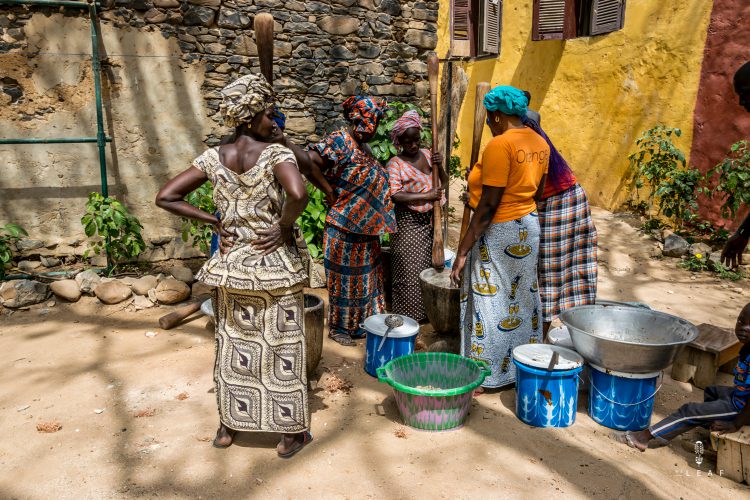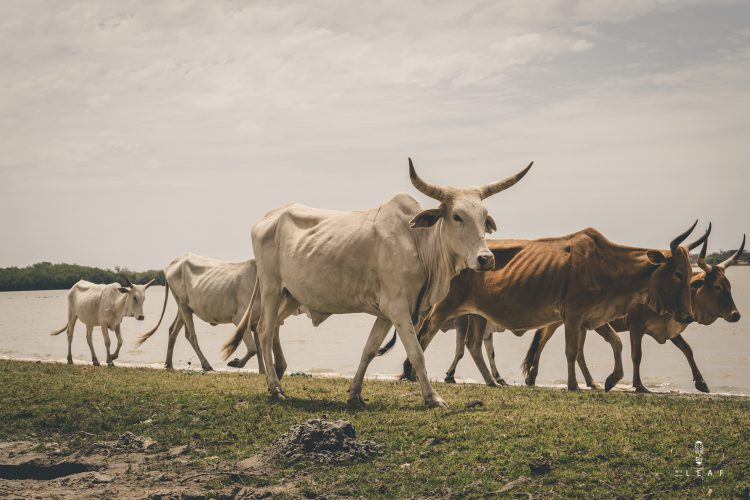
Inside Gambia
April 30, 2017
John Verschuijten
May 9, 2017March 31st - Harbour Banjul
Like a marionette I get into the line of the drumming crowd of people who try to get on board of the ferry. Everybody pushes and wrenches as if there is a giant press behind us which squeezes the mass inside. I should not think about doing this with our bicycles. ‘Full’ means when there is no centimeter of place left. Like sardines we are packed together and still some vendors are able to sell different kind of products to the passengers. They don’t have place to move around, but via five intermediate stations the merchandise and the money reach the proper hands. When we arrive it is clear how many people where on board. It looks like the start of a marathon with an indefinite flow of people coming out of the ferry.
From the first minute Senegal feels like a new country. There are motor taxis everywhere and “Hello my friend, how are you” changes into the more charming “Bonjour mon ami, ca va?”. The local language, Wolof, is mixed with a lot of French words, which make you doubt about the quality of your own French, before you realise that they talk in Wolof. The currency in Senegal is CFA, with a horrible exchange rate of 650 CFA for one euro. The consequence is that everything seems expensive, for example a bread with egg costs 400 CFA, which make you feel being robbed. But for the rest everything is very recognisable. The heat, the mangroves, the dry landscape, the minivans, tapalapas and the peeled oranges all look the same.
The first week I visit some projects that my neighbour in Belgium initiated. Toubacouta is my first stop. Regarding the guide books it is one of the most beautiful places to visit the Sine-Saloum Delta, one of Senegal’s highlights, but after all the mangroves and rivers in Gambia I might be a little bit spoiled. For the first time in six months I need to find a place to sleep on myself. It feels strange to wander around alone and not being able to ask Zoë “what do you think about it?”. After seeing a couple to expensive, of dirty guesthouses, an enthusiastic young boy approaches me. They have a place to sleep in their compound. The two sisters are still laying on the bed when he shows me the room. Quickly they are put to work and moments later I am eating the Senegalese variant of bechakin, together with the family. The hospitality is big in Senegal. In wolof they have a special word for it, Teranga.
The second stop is Sokone, a bigger village half an hour further on the road. Amadou’s wife, Bingo, is waiting for me. They have a campement, the name for all the lodges in Senegal, at the border of a mangrove. I will stay all week long with Amadou until I have collected all the information I need. Everyday I lunch together with the family, in the Senegalese way. With six of seven people we are sitting around a big bowl and everybody eats with a spoon or with his hands. One of the woman divides the pieces of fish and vegetables and trows them to your side of the bowl. The chickens are scratching around, waiting for inattentive moment to jump into the bowl. A few days later I eat together with another family and there a two big bowls this time, one for the men, one for the women. During the meal it is common to change your seat and take a place at the other bowl. Dining is a highly social event, but actually all the activities here are social because all the life is happening in groups and on the streets.
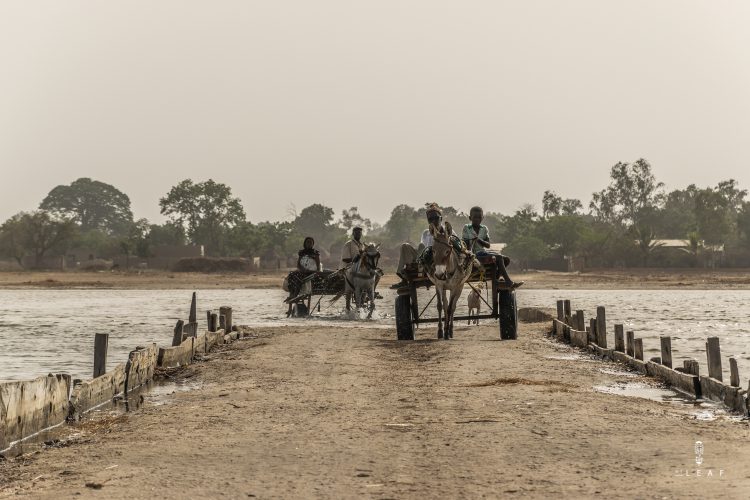
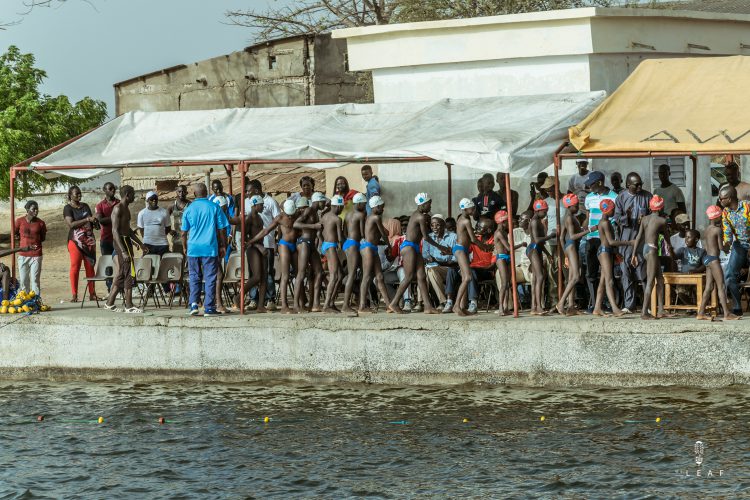
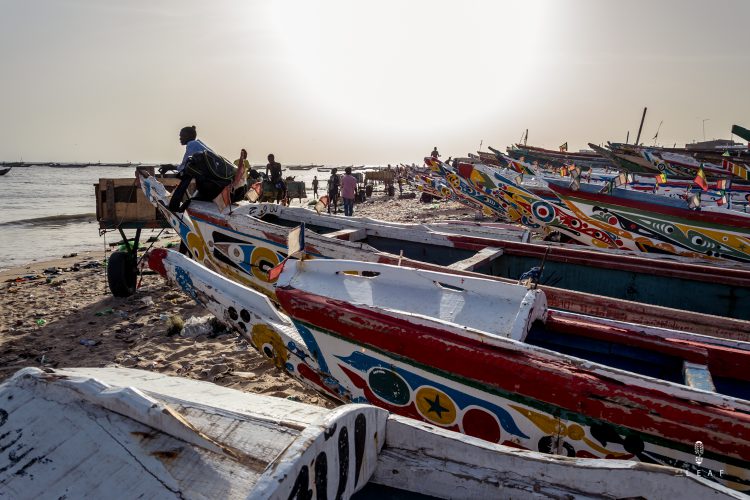
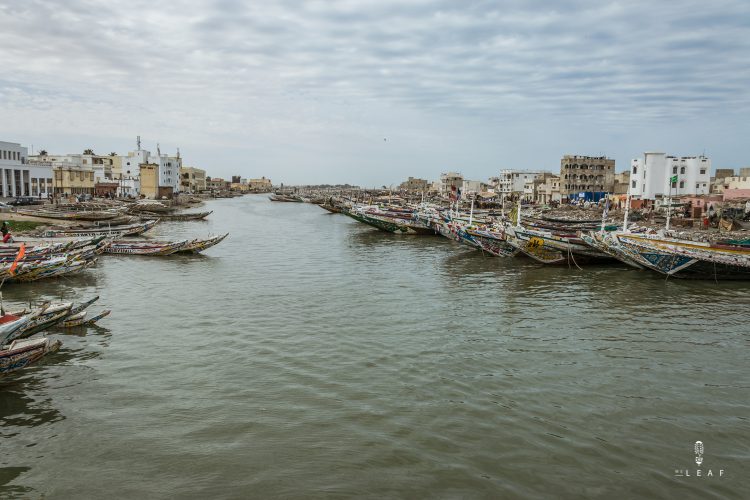
Sunday it are the local swimming championships in Sokone. They don’t have a swimming pool, but there is enough water in between the mangroves. Twenty little boys, all dressed with the same blue swimsuit and white bathing cap are sitting under a big white party tent. Before the start they shake hands to all the important people and line up neatly in a straight row into the water. The distance is fifty meter around an improvised wooden pole in the water. At the finish line they receive a little paper with a number, which is their result, just like the queue at the butcher.
All week long I acquainted with the Senegalese time. They say themselves “En Senegal nous n’avons pas une montre” (we don’t have a watch in Senegal). On an agreed hour you need to add at least two hours and even then you will be early. On my way to the big city Kaolac the rusty sept-place, a big car with seven passengers, breaks down and stands still for more than one hour. There is something broken, but nobody knows what and the driver has gone. The other Senegalese passengers don’t mind waiting, while I’m clearly full with Western blood. On Tuesday evening there is a wrestling event, the national sport in Senegal. The game starts at seven o’clock, European time. Two times we find a completely empty wrestling arena, there is no wrestler to see. But when we come back the third time at eleven o’clock an incredible scene starts. The arena has the size of half a football field and is enclosed by an improvised woorden fence. The spectators are sitting and standing around the middle ground where the wrestlers are preparing for the fight. The preparation is a full of special rituals. The wrestlers walk around with a strange dancing move and are decorated with odd objects. At several moments they stop and scrape some signs into the soil. Every wrestler has a team of helpers who pitch precisely a collection of plastic bottles filled with a coloured substance in front of them. The wrestler takes the bottles and throws the content over his body, sometimes twenty different types. This way they call for the help of God. A group of drummers and singing women escort the presentation ceremony which brings all the fighters in a deep trance. “C’ets le magique” says Lamin when I ask what is the meaning of the objects and bottles.
The preparation of every fight starts with a new serie of rituals. After this the wrestler is checked by the referee because the mixture from the bottles can make the body too slippery. The battle itself is a cat and mouse game where two muscular bodies are waiting for minutes for that little moment of inattentiveness of his opponent. A fraction of a second is enough to throw your opponent on his back. The winner goes to the next round, the loser has to go home which sometimes leads to a great deception, desperation and even a complete trance. After a spectacle of three hours there is one victor who goes home with an amount of money or some cows and a bag of rice. This wrestling game makes the list of most special moments that I ever encountered.
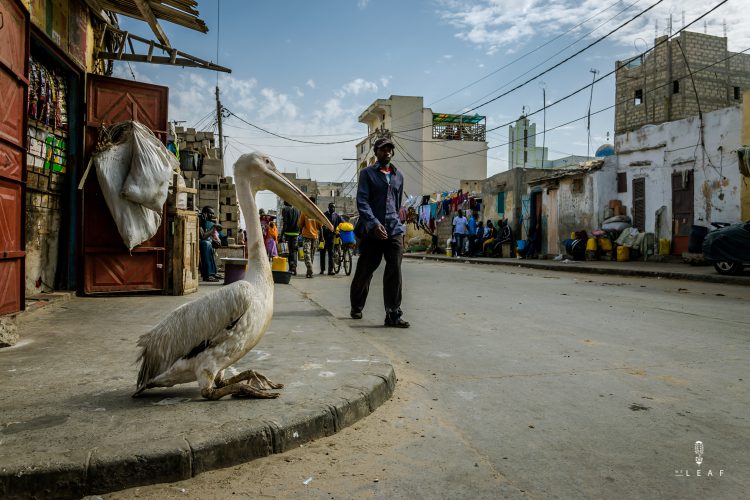
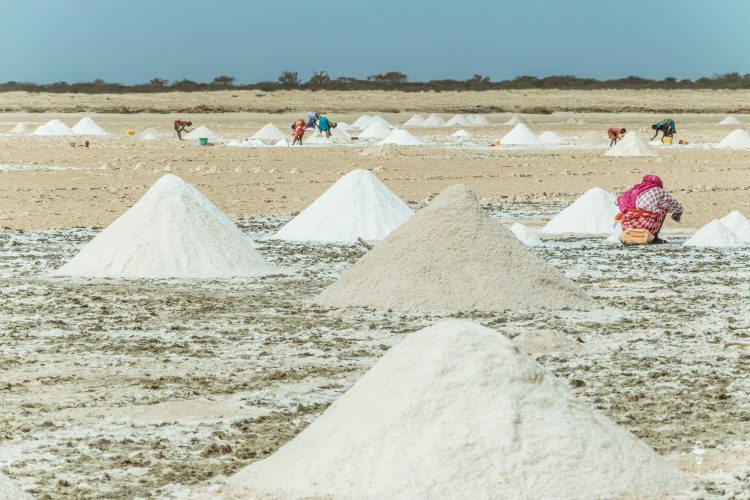
After an amazing week it is time to discover the rest of Senegal. Via Kaolack I travel to Mbour, a big fishing village south of Dakar. It is an enlargement of the tiny fishing village Tanji in Gambia and a mecca for anyone who loves wooden fishing boats. After this short visit I continue to St-Louis in the north of Senegal. This was the first city of the French colonial empire and is covered with old mansions. There are more tourists here, but hostels barely exist in Senegal, thus meeting other solo travellers is hard. Alone, a tour to the bird reserve costs a fortune and walking alone in the city isn’t interesting for the whole day. With a bicycle I discover the surroundings and pass next to some salt extraction places. Under the burning sun the women are scraping the salt crust from the ground, everything with bare hands and feet. Voor every 25 kilogram they earn 150 CFA, which is around 25 erectness.
The last days I travel to Dakar, which is discouraged by many people, but I feel myself at home in the vibrant neighbourhood where I stay. Touristy there is, next to the picturesque slavery island Ile de Goree, not so much to see, but the fizzing life in this capital is worth a visit. After two in Senegal it is time to go to the other side. The teranga gave me a fantastic first week, but travelling alone in Senegal I cannot recommend. However the mangos are falling out of the trees, life is cheap and it feels safe everywhere, Senegal lacks variation in nature and cities, specially after three weeks in Gambia. It is time for the next continent, a new chapter in our adventure. Inshallah they say in wolof, which means literally ‘if allah wills’, with which they want to say ‘good luck and have fun’.


